 In gearing up for the annual American Sociological Association conference this summer in Denver, I have been pondering this year’s theme – “Real Utopias.” This topic, according to the ASA program, is trying to bridge together the empirical and theoretical realities of life with the vision of “… a fantasy world of perfect harmony and social justice.” In dealing with this tension between the practical and the dream, the ASA meeting calls for “… developing a sociology of the possible, not just of the actual.” But what would this type of sociology look like? And where do we even begin to find the tools to forge this novel way of conceptualizing a better tomorrow? I believe one possible undertaking can happen by turning to the root of the erotic in our own personal lives so that we can strive collectively for this utopian future.
In gearing up for the annual American Sociological Association conference this summer in Denver, I have been pondering this year’s theme – “Real Utopias.” This topic, according to the ASA program, is trying to bridge together the empirical and theoretical realities of life with the vision of “… a fantasy world of perfect harmony and social justice.” In dealing with this tension between the practical and the dream, the ASA meeting calls for “… developing a sociology of the possible, not just of the actual.” But what would this type of sociology look like? And where do we even begin to find the tools to forge this novel way of conceptualizing a better tomorrow? I believe one possible undertaking can happen by turning to the root of the erotic in our own personal lives so that we can strive collectively for this utopian future.
In my endeavor to understand the power of the erotic and how it can assist in achieving a better world, I first turned to one of the earliest sociologists Max Weber. In his “Religious Rejections of the World and Their Directions,” Weber (1946) explored how discipline deals with the irrationality of the erotic sphere. Weber called sexual love “… the greatest irrational force…” that is in constant tension with rationality and discipline (343). Rationality produces legally constituted marriage as the only rational form of romantic economic arrangement, and as seen in The Protestant Ethic (1930), sex is just a calling from God to reproduce. Society has to regulate sexual intercourse to marriage because eroticism can easily produce frenzies that are non-routinized and, hence, irrational. Since rationality and discipline are impersonable and emotionless, society has to control the erotic because it signifies love and emotions. As Weber notes, a person engaging in an erotic relation is “… freed from the cold skeleton hands of rational orders, just as completely as from the banality of everyday routine” (p. 347). The erotic relation, to Weber, “… embodie[s] creative power…” (p. 347) and is hence constructed as a “…loss of self-control…” by the rational cosmos of the societal order (p. 349). Because the erotic relation is predicated on love, emotion, and so forth, it stands in direct opposition to the rational social order and is hence disciplined as being irrational unless done within marriage and only for procreation. Weber, however, saw a great deal of power in the erotic relation as it frees people from the rational, mundane order of life, allowing for a more utopian future outside of the disciplined world of today.
Accordingly, in her piece “The Uses of the Erotic,” Audre Lorde (2007, [1984]) also sees the erotic as a creative power source that can allow one to explore inner possibilities in pursuing genuine social change. She argues that the erotic is a resource in each person, “… which arises from our deepest and non-rational knowledge” (p. 88). Society tells us to condemn and vilify this resource; however, for Lorde, this resource is a source of power that helps us feel as we do our work, instead of just always routinely and emotionlessly trudging through life. This creative power is born from love, but capitalism has devalued it and constructed it as dangerous. Since the erotic is born of love though, it can help us in understanding others and lessen the threat of differences between strangers and ourselves. For this matter, we must begin to recognize our erotic feelings, so that we can share these deep feelings with others and then re-bridge the gaps that have divided us. As Lorde writes, “Recognizing the power of the erotic within our lives can give us the energy to pursue genuine change within our world, rather than merely settling for a shift of characters in the same weary drama” (p. 91). The erotic, for Lorde and similarly for Weber, is a non-rational, creative source of power within each of us that needs to be freed so we can feel life and then develop love and empathy for ourselves, and more importantly, for others.
Moving to an intriguing application of the erotic, Richard Fung (1991) examines the power of the erotic in his analysis of race within gay male pornographies. Fung traces the ways in which Asian men are depicted as submissive sexual actors and basically as props for the pleasure of white men. His descriptions of these various pornographies and their racist ideologies are unnerving; yet, in his conclusion, Fung talks about the power of the erotic in certain moments of these films. In these moments, Fung believes that these racist ideologies are suspended or eclipsed by the power of the erotic. For him, these “genuine” moments typically happen when he sees the bodies caressing one another. The actors stop pretending to be in their racist roles, and, instead, the porn actors “… appear neither as simulated whites nor as symbolic others” (p. 161). The power of the erotic interrupts or supersedes racism within these ephemeral moments, where the creative source of feeling takes over from the racist roles being presented.
Weber, Lorde, and Fung – all seem to find great life-changing power within the erotic. This life source challenges the routinized, disciplined ways of society. It pushes us to love and feel, and in that, it advances us towards a new form of intimacy with strangers. It also has the capability to transcend (at least temporarily) hegemonic ideologies, granting new ways of relating between the other and the self. How then can we tap into this source of the erotic in each of ourselves in order to form a collective strategy to achieve a more perfect future? The erotic appears to have the potential to bring about more equitable ways of relating and new visions for the possibilities of sociology. However, we all must begin to feel the erotic inside of us, and then we can start imagining and striving for this harmonic future that the ASA theme has called on all of us sociologists to delve in and investigate this year.
References
Fung, Richard. 1991. “Looking for My Penis: The Eroticized Asian in Gay Video Porn.” Pp. 145-168 in How Do I Look? Queer Film and Video, edited by Bad Object-Choices. Seattle: Bay Press.
Lorde, Audre. 2007 [1984]. “The Uses of the Erotic: The Erotic as Power.” Pp. 87-91 in Sexualities and Communication in Everyday Life: A Reader, edited by Karen E. Lovaas and Mercilee M. Jenkins. Thousand Oaks: Sage Publications, Inc.
Weber, Max. 1930. The Protestant Ethic and the Spirit of Capitalism. New York: Routledge.
Weber, Max. 1946. “Religious Rejections of the World and Their Directions.” Pp. 323-359 in From Max Weber: Essays in Sociology, edited by H. Gerth and C. W. Mills. New York: Oxford University Press.
—
Brandon Andrew Robinson is a doctoral student in the Department of Sociology at the University of Texas at Austin. His research interests include sexualities, queer spatialities, and intersectionality. His newest project will be examining how the Internet impacts sexual behavior and desire for men who have sex with men.




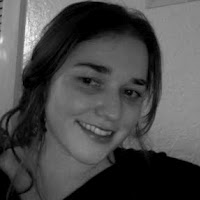
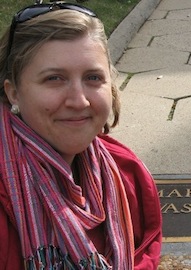
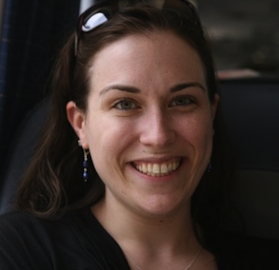
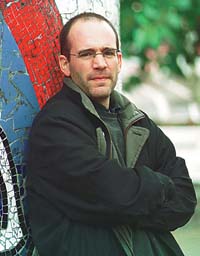 RQ: Professor Auyero, what aspect of your current work means the most to you and why?
RQ: Professor Auyero, what aspect of your current work means the most to you and why?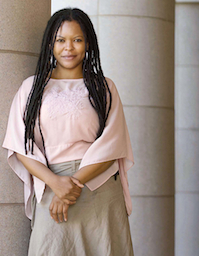 RQ: Professor Browne, what aspect of your current work means the most to you and why?
RQ: Professor Browne, what aspect of your current work means the most to you and why?

